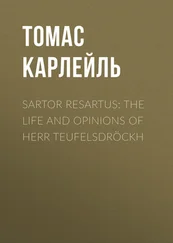Vladimir Nabokov - Strong opinions
Здесь есть возможность читать онлайн «Vladimir Nabokov - Strong opinions» весь текст электронной книги совершенно бесплатно (целиком полную версию без сокращений). В некоторых случаях можно слушать аудио, скачать через торрент в формате fb2 и присутствует краткое содержание. Город: New York, Год выпуска: 1990, Издательство: First Vintage International Edition, Жанр: Классическая проза, на английском языке. Описание произведения, (предисловие) а так же отзывы посетителей доступны на портале библиотеки ЛибКат.
- Название:Strong opinions
- Автор:
- Издательство:First Vintage International Edition
- Жанр:
- Год:1990
- Город:New York
- ISBN:нет данных
- Рейтинг книги:4 / 5. Голосов: 1
-
Избранное:Добавить в избранное
- Отзывы:
-
Ваша оценка:
- 80
- 1
- 2
- 3
- 4
- 5
Strong opinions: краткое содержание, описание и аннотация
Предлагаем к чтению аннотацию, описание, краткое содержание или предисловие (зависит от того, что написал сам автор книги «Strong opinions»). Если вы не нашли необходимую информацию о книге — напишите в комментариях, мы постараемся отыскать её.
Strong opinions — читать онлайн бесплатно полную книгу (весь текст) целиком
Ниже представлен текст книги, разбитый по страницам. Система сохранения места последней прочитанной страницы, позволяет с удобством читать онлайн бесплатно книгу «Strong opinions», без необходимости каждый раз заново искать на чём Вы остановились. Поставьте закладку, и сможете в любой момент перейти на страницу, на которой закончили чтение.
Интервал:
Закладка:
Montreux, December 23, 1963
Published in The New York Review of Books on April 30, 1964. A «Second Printing, revised» of Arndt's «translation» appeared later (1965?) but despite the note saying (p. v) that «several emendations were suggested by Vladimir Nabokov's criticisms at various times» this «revised» version still remains as abominable as before.
A REPLY TO MY CRITICS
In regard to my novels my position is different. I cannot imagine myself writing a letter-to-the-editor in reply to an unfavorable review, let alone devoting almost a whole day to composing a magazine article of explanation, retaliation, and protest. I have waited at least thirty years to take notice — casual and amused notice — of some scurvy abuse I met with in my «V. Sirin» disguise, but that pertains to bibliography. My inventions, my circles, my special islands are infinitely safe from exasperated readers. Nor have I ever yielded to the wild desire to thank a benevolent critic — or at least to express somehow my tender awareness of this or that friendly writer's sympathy and understanding, which in some extraordinary way seem always to coincide with talent and originality, an interesting, though not quite inexplicable phenomenon.
If, however, adverse criticism happens to be directed not at those acts of fancy, but at such a matter-of-fact work of reference as my annotated translation of Eugene Onegin (hereafter referred to as EO), other considerations take over. Unlike my novels, EO possesses an ethical side, moral and human elements. It reflects the compiler's honesty or dishonesty, skill or sloppiness. If told I am a bad poet, I smile; but if told I am a poor scholar, I reach for my heaviest dictionary.
I do not think I have received all the reviews that appeared after EO was published; I fail to locate a few that I was sure I had in my chaotic study; but judging by the numerous ones that did reach me, one might conclude that literal translation represents an approach entirely devised by me; that it had never been heard of before; and that there was something offensive and even sinister about such a method and undertaking. Promoters and producers of what Anthony Burgess calls «arty translations» — carefully rhymed, pleasantly modulated versions containing, say, eighteen percent of sense plus thirty-two of nonsense and fifty of neutral padding are I think more prudent than they realize. While ostensibly tempted by impossible dreams, they are subliminally impelled by a kind of self-preservation. The «arty translation» protects them by concealing and camouflaging ignorance or incomplete information or the fuzzy edge of limited knowledge. Stark literalism, on the other hand, would expose their fragile frame to unknown and incalculable perils.
It is quite natural, then, that the solidly unionized professional paraphrast experiences a surge of dull hatred and fear, and in some cases real panic, when confronted with the possibility that a shift in fashion, or the influence of an adventurous publishing house, may suddenly remove from his head the cryptic rosebush he carries or the maculated shield erected between him and the specter of inexorable knowledge. As a result the canned music of rhymed versions is enthusiastically advertised, and accepted, and the sacrifice of textual precision applauded as something rather heroic, whereas only suspicion and bloodhounds await the gaunt, graceless literalist groping around in despair for the obscure word that would satisfy impassioned fidelity and accumulating in the process a wealth of information which only makes the advocates of pretty camouflage tremble or sneer.
These observations, although suggested by specific facts, should not be construed in a strictly pro domo sua sense. My EO falls short of the ideal crib. It is still not close enough and not ugly enough. In future editions I plan to defowleric it still more drastically. I think I shall turn it entirely into utilitarian prose, with a still bumpier brand of English, rebarbative barricades of square brackets and tattered banners of reprobate words, in order to eliminate the last vestiges of bourgeois poesy and concession to rhythm. This is something to look forward to. For the moment, all I wish is merely to put on record my utter disgust with the general attitude, amoral and Philistine, towards literalism.
It is indeed wonderful how indifferent most critics are to the amount of unwillful deceit going on in the translation trade. I recall once opening a copy of Bely's Petersburg in English, and lighting upon a monumental howler in a famous passage about a blue coupe which had been hopelessly discolored by the translator's understanding kubovyy (which means «blue») as «cubic»! This has remained a model and a symbol. But who cares and why bother? Mr. Rosen in The Saturday Review (November 28, 1964) ends his remarks on rhymed versions of Eugene Onegin with the expression of a rapturous hope: «It only remains for a talented poet like Robert Lowell to take advantage [of these versions] to produce a poem in English that really sings and soars». But this is an infernal vision to me who can distinguish in the most elaborate imitation the simple schoolboy howler from the extraneous imagery within which it is so pitifully imbedded. Again — what does it matter? «It is part of the act», as Mr. Edmund Wilson would say. The incredible errors in the translations from the Russian which are being published nowadays with frenetic frequency are dismissed as trivial blemishes that only a pedant would note.
Even Professor Muchnic, who in a recent issue of The New York Revtew of Books delicately takes Mr. Guy Daniels apart as if he were an unfamiliar and possibly defective type of coffee machine, neglects to point out that in both versions of Lermontov's poem which she quotes — Daniels' effort and Baring's very minor (pace Mirski) poem — the same grotesque imp blows a strident trumpet. For we have here an admirable example of one of those idiomatic freaks that for reasons of mental balance foreigners should not even try to rationalize. Lermontov's Russian goes: Sosedka est' u nib odna . . . Kak vspomnish', kak davno rasstaliis And the literal sense is: «They have a certain neighbor [fern.] . . . Oh, to think how long ago we parted!» The form vspomnish' looks like the second person singular of «remember», but in this intonational arrangement it should be the first person in literal translation since it is addressed by the speaker to himself. Now, both versionists being ignorant of idiomatic Russian did not hesitate to use the second person (though actually the result gives a painfully didactic twist to the sentence, which should have made the translator think twice). Baring's version (which Professor Muchnic, I am sorry to say, calls «a wonderfully precise reproduction of the sense, the idiom») runs: «We had a neighbor . . . and you remember I and she ..». While the more humble Daniels translates: «There was a girl as you'll recall..». I have italicized the shared boner. The point is not that one version is better than the other (frankly there is not much to choose between the two); the point is that unwittingly both use the same wrong person as if all paraphrasts were interconnected omphalically by an ectoplasmic band.
Despite the violent attitude towards literalism, I still find a little surprising the intensity of human passions that my rather dry, rather dull work provokes. Hack reviewers rush to the defense of the orthodox Soviet publicists whom I «chastise» and of whom they have never heard before. A more or less displaced Russian in New York maintains that my commentary is nothing but a collection of obscure trifles and that besides he remembers having heard it all many years ago in Gorki from his high-school teacher, A. A. Artamonov.
Читать дальшеИнтервал:
Закладка:
Похожие книги на «Strong opinions»
Представляем Вашему вниманию похожие книги на «Strong opinions» списком для выбора. Мы отобрали схожую по названию и смыслу литературу в надежде предоставить читателям больше вариантов отыскать новые, интересные, ещё непрочитанные произведения.
Обсуждение, отзывы о книге «Strong opinions» и просто собственные мнения читателей. Оставьте ваши комментарии, напишите, что Вы думаете о произведении, его смысле или главных героях. Укажите что конкретно понравилось, а что нет, и почему Вы так считаете.










